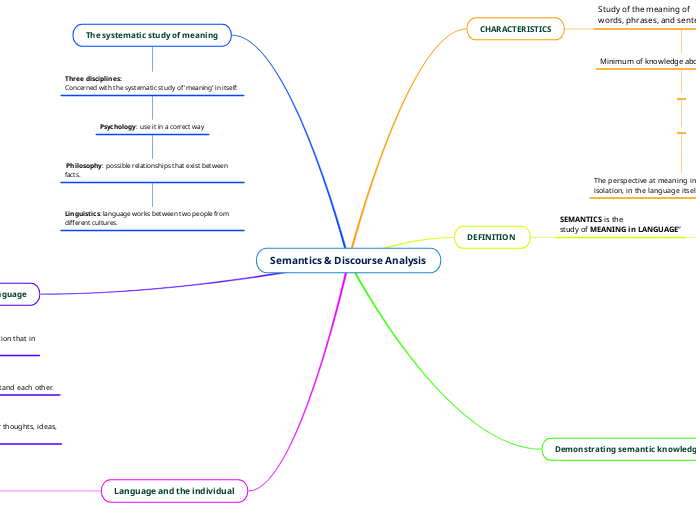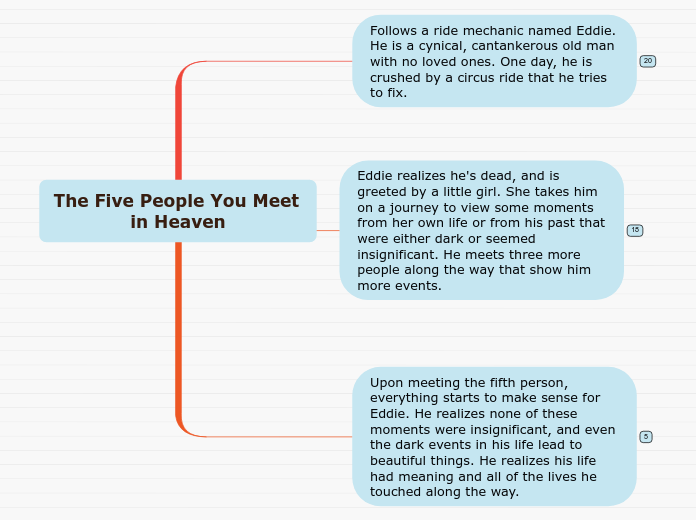ASSIGNMENT2:PRAGMATICS
QUESTION1:
H:Maxim of Clarity:
for example:
A: “You went to the Opera last night. How was the lead singer?”
B: “the singer produced a series of sounds corresponding closely to the score of an aria from ‘Rigoletto’”.
It is adhering in one’s conversation to the principle of making what one says as clear as possible. This requires that the speaker should avoid the use of ambiguous and obscure expressions. Also the speaker should avoid unnecessary prolixity. That is he should be brief.
G:Maxim of informativeness:
Let’s consider the following example:
A: Do you have the time?
B: It is half past nine.
In this example, (B) is as informative as is required which means that he hasn’t flouted the maxim of informativeness. Yet, if he had said:
B: It is half past nine, at night, Greenwich Mean Time, 20th of May 2012”, he would have said more than necessary. At the same time, if he said:
B: “It is night”, he would be less informative than is required.
when engaged in a conversation, the speaker has to make his contribution as informative as is required for the purpose of the exchange. That is to say, you should not say less or more than what is required. This maxim, therefore, relates to the amount of information provided in a conversation.
F:Maxim of Relevance:
. In the following example, the speaker (A) is flouting this maxim:
A: What qualities does John have for this position?
B: He has good handwriting.
In this example, (B) has flouted the maxim of relevance because his response is not relevant to A’s question. (A) therefore has to infer an implicature that would help him understand what (B) intends. So when one of the maxims is flouted, the speaker resorts to cooperation to carry out the conversation.
it is one of Grice’s cooperative principles’ maxims. It has to do with whether what a speaker is saying has a relation to the topic of the conversation or not.
E:Cooperative Principle:
The maxims of cooperation.
_ Maxim of manner: a avoid obscurity of expression.
b- avoid ambiguity.
c- be brief.
d- be orderly.
_ Maxim of relation: a- be relevant.
_ Maxim of quantity:
a- make your contribution as informative as is required for the current purpose of the exchange.
b- don’t make your contribution more informative than is required.
_ Maxim of quality:
a- don’t say what you believe to be false.
b- don’t say that for which you lack evidence.
This principle was proposed by Grice. He said that participants in a communicative exchange are guided by a principle that determines the way in which language is used with maxims to achieve communication. These principles are used to determine the extent to which a conversational contribution is made as is required, at the setting in which it occurs by the accepted purpose or direction of the talk exchange in which you are engaged.
D: Cancellation of Implicatures:
A: ‘ some of my friends,in fact all, came to the party. 'Here,the speaker has started his utterance with ‘some’ ,which would have lead the hearer to infer that it’s ‘not all’ ;but,he cancelled this implicature by the addition of the utterance ‘in fact all’.
All implicatures that a hearer is going to maKe from thetterance of a speaker can be cancelled by a second utterance from the speaker.In other words,the hearer makes aquick implicature from the utterance;but,immediately,the speaker makes that implicature untrue by simply an other utterance.
C:Implicature:
Example:
Student: Thomas Edison is an astronaut. Isn’t he teacher?
Teacher: And Lionel Messi is a guitarist, I suppose.
Here, the teacher flouts the maxim of quality (he’s said false /non-true information). So, the student has to infer that Messi is not a guitarist from beyond the response of the teacher.
It is an inferred assumption that a hearer makes based on the proposition that is made by a speaker provided that the hearer is cooperating in order to grasp what the speaker intends to mean. Implicature is an inference made by a hearer when the speaker flouts any of Grice’s conversational maxims. Unlike entailment and presupposition, conversational implicature is not tied to any particular word or phrase in an utterance, but it arises from understanding that the speaker has flouted a conversational convention. It is the additional meaning that is made beyond what is said.
B:Entailment:
Exapmle
a-My brother is single. Entails b- My brother doesn’t have a wife.
c-Mary’s brother has three cars Entails - Mary’s brother has one car /two cars.
it is what logically follows from an utterance. It is the relationship between the statements when one logically follows from another one. It is a sequence of deduction between statements. In other words, one statement entails another when the second is a logically necessary consequence of the first.
A:Inference:
It is a deduction or a conclusion that is logically made by a hearer based on his/her knowledge about the world and the utterance of a speaker. Eg; “I gave my Shakespeare to my classmate to read it”. The hearer infers that “Shakespeare” can’t refer to a person. So the hearer has to use his/her own knowledge to infer correctly what a speaker intends to identify by using a particular expression. The same thing applies for the following: “I will see Shakespeare in London” and “Thomas Hardy takes up half of my library”.
QUESTION 6:
Normally,B 's response to A 's utterance has the intention of telling A by implicature (indirectly) that winning the lottery is not possible.A's retort (last response),however,shows that A has not got the'message' and he has broke,therefore, the implicature by saying 'what are you...?'.He might have got the 'message' of B's response and still he pretended not to have understood it as a face-saving technique.
Question5:
The relationship between (a) and (b) is implicature. It is the type of scalar implicature because 4 out of 6 is most but not many.
‘Most birds are on the lawns’ implies that many birds are on the lawns.
Question4:
Appropriate answers of B which implicate the given implicatures:
e-"I can recognise different shapes".
d-"All the roads lead to Rome".
c-"I have just seen their car there in the driveway"
b-"I hate going to the doctor".
a-"John has recently bought a cheap jacket from the shop in the corner".
QUESTION3:
k-Maxim of relevanec;It's impossible.
j-Maxim of relevance:I haven't done my homework yet.
i-Maxim of relevance; I don't like it.
h-Maxim of clarity:I don't know/I am not sure about that which way we should take.
g-Maxim of quantiti:the speaker is saying more than is necessary.
f-Maxim of informativeness:"B" has got alot of money/He's spent a lot of money on painting the house/he's a sence of loving traditional arts.
e-Maxim of quality:you are saying something ironical/not true to make fun of me.
d-Maxim of relevance:I didn't like it
c-Maxim of relevance:you should see a doctor.
b-Maxim of relevance is violated:I don't want to speak about this.
a-Maximofrelevance is floated:"A" is not a good student.
QUESTION2:
An implicature is a non-truth conditional inference means that the implicature which a hearer is making might be wrong.
Entailment and Implicature
Differences:
Entailment
it's sentence meaning
It deals with what's beyond the sentence rather than the utterance.
It is concerned with the meaning of the proposition itself.
-It is the realationship that applies between two sentences because of the meaning of the words involved.
Implicature
it's speaker's meaning
can be non true
Example:A:'Will you attend class tomorrow?' B-'My copybook is lost'---here the hearer has to draw the inference that A is not going to attend class.
it deals with what's beynd the utterance.Hence,the use of other background knwoledge to draw the inference.
-it raises when one of the conversational maxims is floated.
it can be cancelled.
-It relies on more than the linguistic elements of an utterance.
-It deals with what is implied in an utterance and not said explicitly.
Similarities
b-both of them go beyond what is said.
a- in both of them,the hearer is making an inference.









